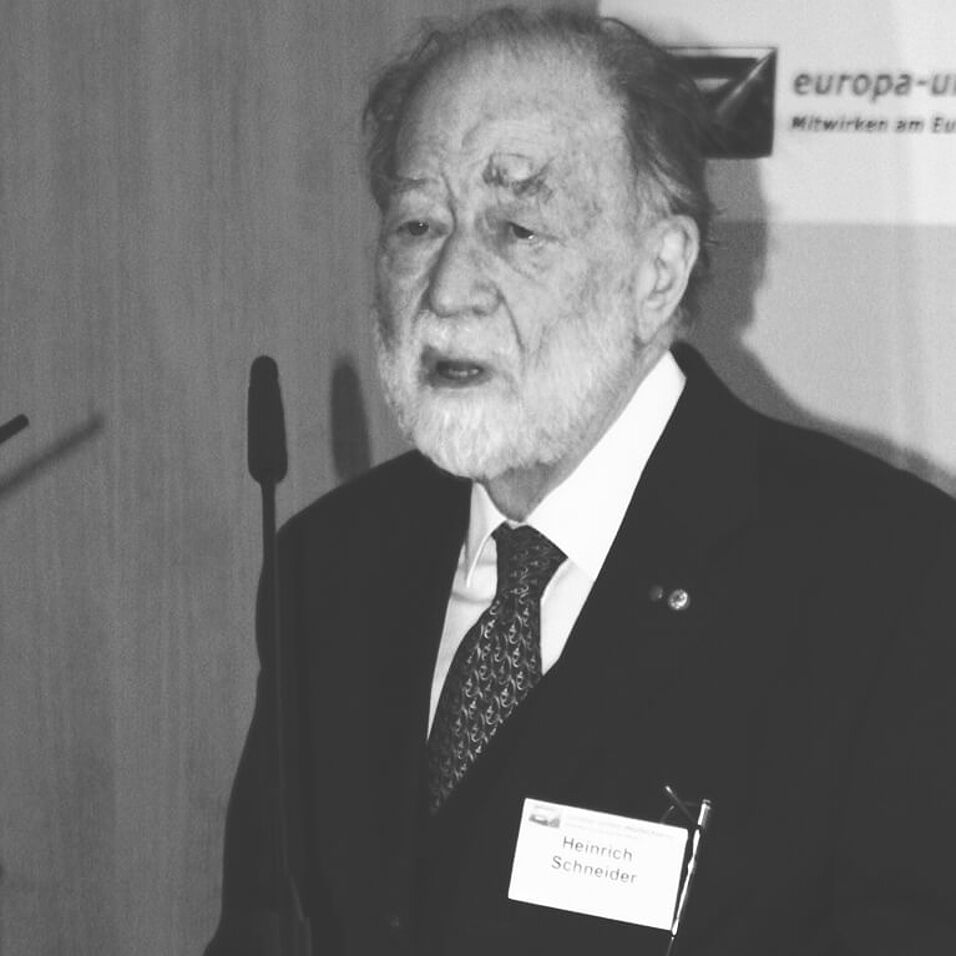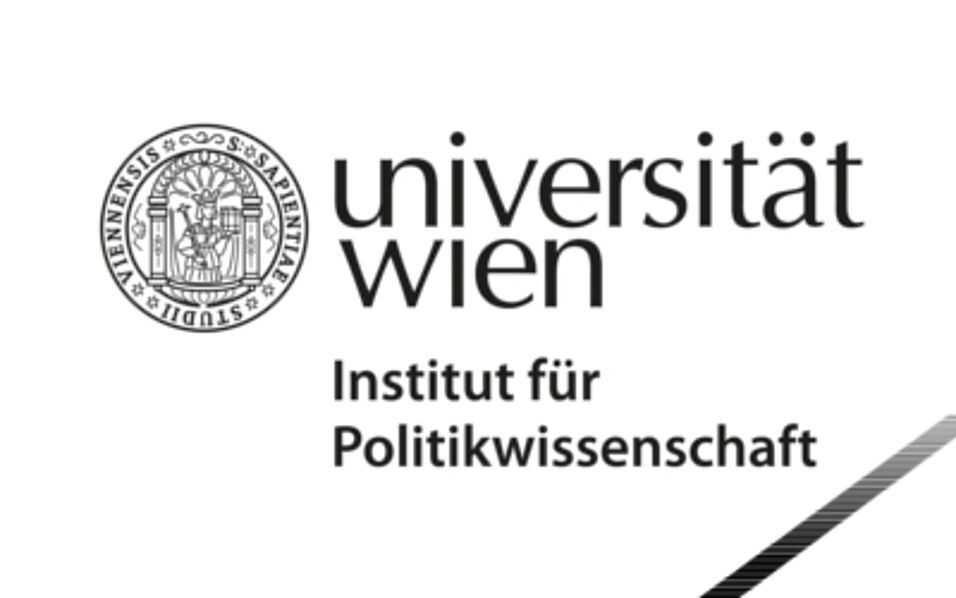Austrian political science owes a great deal to him as founder of the Department for Political Science at the University of Vienna and long-standing professor.After the establishment of political science at Austrian universities, the "Institute for Theory of Politics", founded in 1971 and headed by Heinrich Schneider, was renamed the "Institute for Political Science" in 1977. Until 1981 he was the only professor, until 1986 he was also chairman of the board of directors of the institute, as well as chairman of the study commission for political science and president of the diploma examination commission. The expansion of the teaching programme was achieved in particular by external lecturers. From the outset, the principle of interdisciplinarity was important in this broadening of the range of courses in political science, which was not yet very widespread in Austrian social science in the 1970s.Until his resignation in 1991, Heinrich Schneider had been full professor at the University of Vienna for a total of 23 years. Heinrich Schneider was born on 10 August 1929 in Brandenburg/Havel. He first studied philosophy, theatre studies, German literature, psychology, then political science and sociology at the universities of Bamberg, Munich and Cleveland (Ohio). In 1955 he received his doctorate from the University of Munich. After completing his doctorate, he worked for several years in the "European Federalist Movement" and as a lecturer at the Academy for Political Education in Tutzing. From 1963 to 1967 Heinrich Schneider was Professor of Political Science at the Pädagogische Hochschule Hannover. In 1967 he was appointed to the "Lehrkanzel für Philosophie der Politik und Ideologiekritik" at the Philosophical Faculty of the University of Vienna.Heinrich Schneider has conducted extensive research and published articles. His work was widely received and he received invitations to lectures and guest stays from numerous countries. He has been involved in many scientific committees. In addition to books and essays on the history and theory of political thought and political education, Heinrich Schneider's academic contribution was particularly remarkable in the field of security, defence and peace policy and European policy. With his publications on the development and positioning of the European Union in the 1980s and 1990s, he contributed significantly to the scientific and journalistic discourse in that phase when Austria was on its way to the European Union. Between 1995 and 2001 Heinrich Schneider taught and researched at RWTH Aachen University. From 1973-2001 he was Chairman of the Scientific Directorate of the Berlin Institute for European Politics, followed by its Honorary Chairman and until last in the editorial board of the journal of the Institute "Integration".Heinrich Schneider was extremely active in translating political science topics and his high level of competence into political consulting. He assumed important positions in the "Conference for Security and Cooperation in Europe" (CSCE, later OSCE) - where he was, among other things, Deputy Head of Mission of the Holy See - and in the Catholic field in Austria: Heinrich Schneider was a member of the Austrian Episcopal Commission for Justice and Peace ("Iustitia et Pax") and Chairman of the Board of Trustees of the Catholic Social Academy of Austria. His commitment to political education, for example within the framework of the Federal Ministry of Defence, in which he was chairman of the scientific commission of the BMLV for a long time, should also be emphasized here.Heinrich Schneider has received many awards for his comprehensive activities, including the Europa Union Medal in Gold with the Star, the Grand Silver Medal for Services to the Republic of Austria, the Federal Cross of Merit 1st Class of the Federal Republic of Germany and the Wilhelm Hartel Prize of the Austrian Academy of Sciences.Heinrich Schneider was extremely committed to the teaching and promotion of young scientists and gave it a high priority in terms of time. The committed teaching that students still remember today and the large number of dissertations and diploma theses he supervised are clear indicators of how important this was to him. He attached great importance to encouraging and supporting the independence of students and doctoral candidates in the development of political science competence.The Department of Political Science mourns a highly esteemed colleague. We express our sincere sympathy to his relatives.The Staff of the Department of Political Science at the University of Vienna
Obituary Department of Political Science, University of Vienna (in German)
Obituary Department of European Politics Berlin
Obituary The Archdiocese of Vienna (in German)
Obituary Kathpress - Catholic Press Agency Austria (in German)


